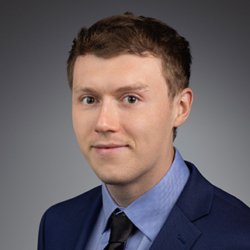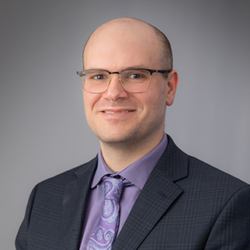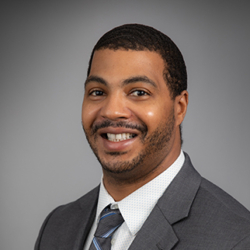Laser Printing of Silver and Silver Oxide
We show that direct laser writing in aqueous silver nitrate with a λ = 1030 nm femtosecond laser results in the deposition of a mixture of silver oxide and silver, in contrast to the pure silver deposition previously reported with 780 nm femtosecond direct laser writing. However, adding photoinitiator prevents silver oxide formation in a concentration-dependent manner. As a result, the resistivity of the material can also be controlled by photoinitiator concentration with resistivity being reduced from approximately 9e-3 Ωm to 3e-7 Ωm. Silver oxide peaks dominate the X-ray diffraction spectra when no photoinitiator is present, while the peaks disappear with photoinitiator concentrations above 0.05 wt%. A THz polarizer and metamaterial are printed as a demonstration of silver oxide printing.
- Year: 2024
- Category: Optics
- Tag: Optics, 3D Printing, Nonlinear Optics, Second Harmonic Generation, Laser Printing
- Author: Jordan M. Adams, Daniel Heligman, Ryan O'Dell, Christine Y. Wang, Daniel Young
- Released: Optica Optical Materials Express
Featured Riverside Research Author(s)
Jordan M. Adams

Daniel Heligman
Dr. Daniel Heligman is a research engineer in the Open Innovations Center's Optics/RF group. He received his B.S in general physics at University of Central Florida and his doctorate in physics at The Ohio State University. His main focus is in optics with a specialization in THz spectroscopy.
LinkedIN
Ryan O'Dell
Dr. Ryan O’Dell is an experienced researcher and engineer specializing in the development of countermeasures for directed energy threats, including high energy lasers (HELs) and high-powered microwave (HPM) systems. He has over 9 years of experience in advanced electromagnetics, defense technology, and experimental physics. Dr. O’Dell has contributed to advancing the protection of DoD assets from emerging directed energy weapons (DEW) through R&D efforts with the NRO, NASIC and AFRL. Dr. O’Dell holds a Ph.D. in electrical engineering from The University of Toledo where he focused on microwave absorbing heterostructures. His Ph.D. work was supported through an AFRL/RXAN DAGSI fellowship where he was mentored by Dr. John Jones, Dr. Gail Brown, and Dr. Benjamin Gray. He received his M.S. in physics and astronomy from Bowling Green State University where he researched charge carrier and photon emission dynamics in ultrasmall lead sulfide quantum dots. He received his B.S. in Physics and Astronomy from Ashland University. Throughout his career he has researched materials to support the DoD mission by developing microwave absorbing thin films, optical coatings, microwave absorbent nanoparticles, and collaborates with the defense industry to refine these protective technologies through CRADAs.

The above listed authors are current or former employees of Riverside Research. Authors affiliated with other institutions are listed on the full paper. It is the responsibility of the author to list material disclosures in each paper, where applicable – they are not listed here. This academic papers directory is published in accordance with federal guidance to make public and available academic research funded by the federal government.
